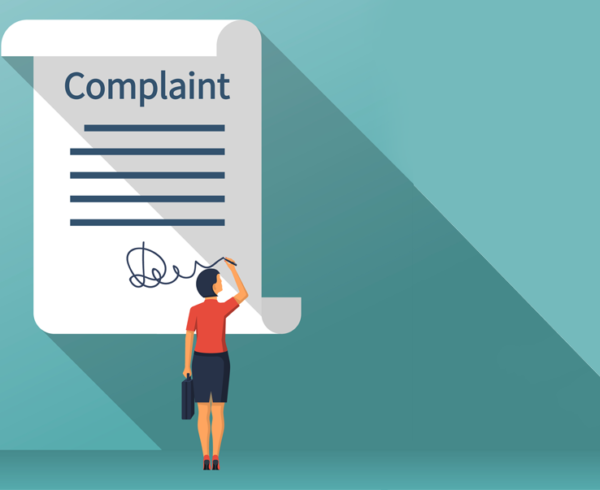| Crime | Law | Punishment |
| Prohibition on use of stream or well for disposing polluting matter | Intentionally polluting or allowing the entry of poisonous, harmful, contaminating material into any stream, sewer or land1 Or Allowing the introduction of any matter that might obstruct the flow of the water or stream, which can make pollution worse as a cause or of its consequences2 is prohibited. Except if the State Government (after consultation with the State Board) has excused any persons from meeting these conditions. 3 | The punishment is jail time for one and half years up to six years, with fine. 4 |
| Failure to comply with the directions of the State Board | When a person or industry fails to follow the directions that the the State Boards have given about: the flow of volume of discharge into the water stream and provide the information required5 the installation, construction or operation of a disposal system for any establishment for preventing and controlling water pollution 6 | The punishment is jail time for three months and fine upto Rs. 10,000, which if the failure to comply continues, attracts an additional fine of Rs. 5,000 per day. 7 |
| Failure to follow the any order of the Board with respect to emergency measure or a direction of the Courts Other Acts | Failure to abide by any order of the State Board for immediately restraining or forbidding a person from discharging poisonous, harmful or contaminating matter into a stream or well or land or making it unclean for use8 Failure to follow an order of the Court for restraining polluting activities9 Failure to follow any direction made by the Central Government about water pollution10 If the failure to follow the above-mentioned orders and direction continues for more than one year, after the date of initial conviction. 11 If a person-destroys, pulls down, removes, injures, demolishes any pillar, post or pole, that is fixed in the ground or any notice is placed upon it or any matter is inscribed on it or placed by it or is under the authority of the Board. or Obstructs any other person, who is performing the orders or directions of the Board, from exercising their functions under law. Damaging any property belonging to the Board. Fails to provide information required to any officer of the Board Fails to inform the Board or other agencies of any accident or incident which results in discharge of excess effluents into the water bodies. Fails to provide information required of them for the purposes of reducing and preventing water pollution or intentionally making false statements. Makes false statements about the discharge outlets and standards of effluents, to get the consent of the Board . 12 | The punishment is jail time for one year and six months, which might extend to six years with fine. An additional fine of Rs. 5000 per day, can also be levied if the failure to comply continues. 13 The punishment is jail time for two to seven years, with fine. 14 The punishment is jail time upto six months with a fine of Rs. 10,000.15 |
| Operation or establishment of an industry without the consent of the Board | If an industry or its operations or any treatment or disposal plant is established without the prior permission of the State Board16, Or Any industry or process discharges sewage or effluents into the water stream or well or sewer or land, in excess of the standards laid down by the State Board and without the Board’s consent. 17 | The punishment is jail time of two to six years with fine18. Furthermore, a higher water cess can be levied. 19 The punishment is jail time for one year and six months up to six years with fine.20 If a person is found guilty under this provision, more than once, then there would be stronger punishment for the second and every subsequent conviction.21 |
| Acts for which no punishment has been laid down by law | Any other polluting acts or acts that contaminate water bodies or acts which restrict the prevention and control of water pollution or affect water purity | The punishment is jail time upto three months with a fine of Rs. 10000. On Continued contravention of law, an additional fine of Rs. 5000 will also be levied. 22 |
| Environmental pollution: pollution of air, water or land | Violation of any provision of the Environmental Protection Act, 1986 i.e pollution of air, water or land or any harm to the environment. | The punishment is jail time upto 5 years and a fine that may extend to one lakh rupees. Continued failure to comply with the law will lead to an additional fine of Rs. 5000 for every day of non-compliance.23 |
| Contaminating public spring or water reservoir | If a person intentionally and voluntarily, contaminates or pollutes the water of a public spring or reservoir, in order to make it unfit for use or consumption 24)) | The punishment is jail time upto three months and fine upto Rs. 500 or both. 25 |
| Releasing of harmful pollutants into the environment | Releasing harmful pollutants into the environment forms is inclusive of water pollution and forms part of the offence of public nuisance26 | The punishment is a fine of Rs. 500.27 |
| Engaging in activities that are harmful to the health and physical comfort of the community | Operating industries and other processes that pollute water bodies and groundwater, and which cause harmful health issues as well as discomfort to the people. This includes any conduct of any such trade or business that is harmful and causes imminent danger to the health of the people and threatens their physical discomfort.28 | An order under Section 133 Code of Criminal Procedure, 1973 for removal of nuisance can be passed by the Magistrate to stop such activities |
- Section 24(1)(a), The Water (Prevention and Control of Pollution) Act, 1974.[↩]
- Section 24(1)(b), The Water (Prevention and Control of Pollution) Act, 1974.[↩]
- Section 24(3),The Water (Prevention and Control of Pollution) Act, 1974.[↩]
- Section 43, The Water (Prevention and Control of Pollution) Act, 1974.[↩]
- Section 20(2), The Water (Prevention and Control of Pollution) Act, 1974.[↩]
- Section 20(3), The Water (Prevention and Control of Pollution) Act, 1974.[↩]
- Section 41(1), The Water (Prevention and Control of Pollution) Act, 1974.[↩]
- Section 32(1)(c),The Water (Prevention and Control of Pollution) Act, 1974.[↩]
- Section 33(2), The Water (Prevention and Control of Pollution) Act, 1974.[↩]
- Section 33A, The Water (Prevention and Control of Pollution) Act, 19[↩]
- Section 41(3), The Water (Prevention and Control of Pollution) Act, 1974.[↩]
- Section 42, The Water (Prevention and Control of Pollution) Act, 1974.[↩]
- Section 41(2), The Water (Prevention and Control of Pollution) Act, 1974.[↩]
- Section 41(3), The Water (Prevention and Control of Pollution) Act, 1974.[↩]
- Section 42, The Water (Prevention and Control of Pollution) Act, 1974.[↩]
- Section 25, The Water (Prevention and Control of Pollution) Act, 1974.[↩]
- Section 26, The Water (Prevention and Control of Pollution) Act, 1974.[↩]
- Section 44,The Water (Prevention and Control of Pollution) Act, 1974.[↩]
- Schedule II, The Water (Prevention & Control of Pollution) Cess Act, 1977.[↩]
- Section 45, The Water (Prevention and Control of Pollution) Act, 1974.[↩]
- Section 45, The Water (Prevention and Control of Pollution) Act, 1974.[↩]
- Section 45A,The Water (Prevention and Control of Pollution) Act, 1974[↩]
- Section 15, Environmental Protection Act, 1986.[↩]
- ((Section 277, Indian Penal Code 1860. [↩]
- Section 277, Indian Penal Code 1860.[↩]
- Ratlam Municipality v. Vardhi Chandra, 1980 AIR 1622.[↩]
- Section 290, Indian Penal code, 1860.[↩]
- Section 133, Code of Criminal Procedure, 1973.[↩]





Leave a Comment